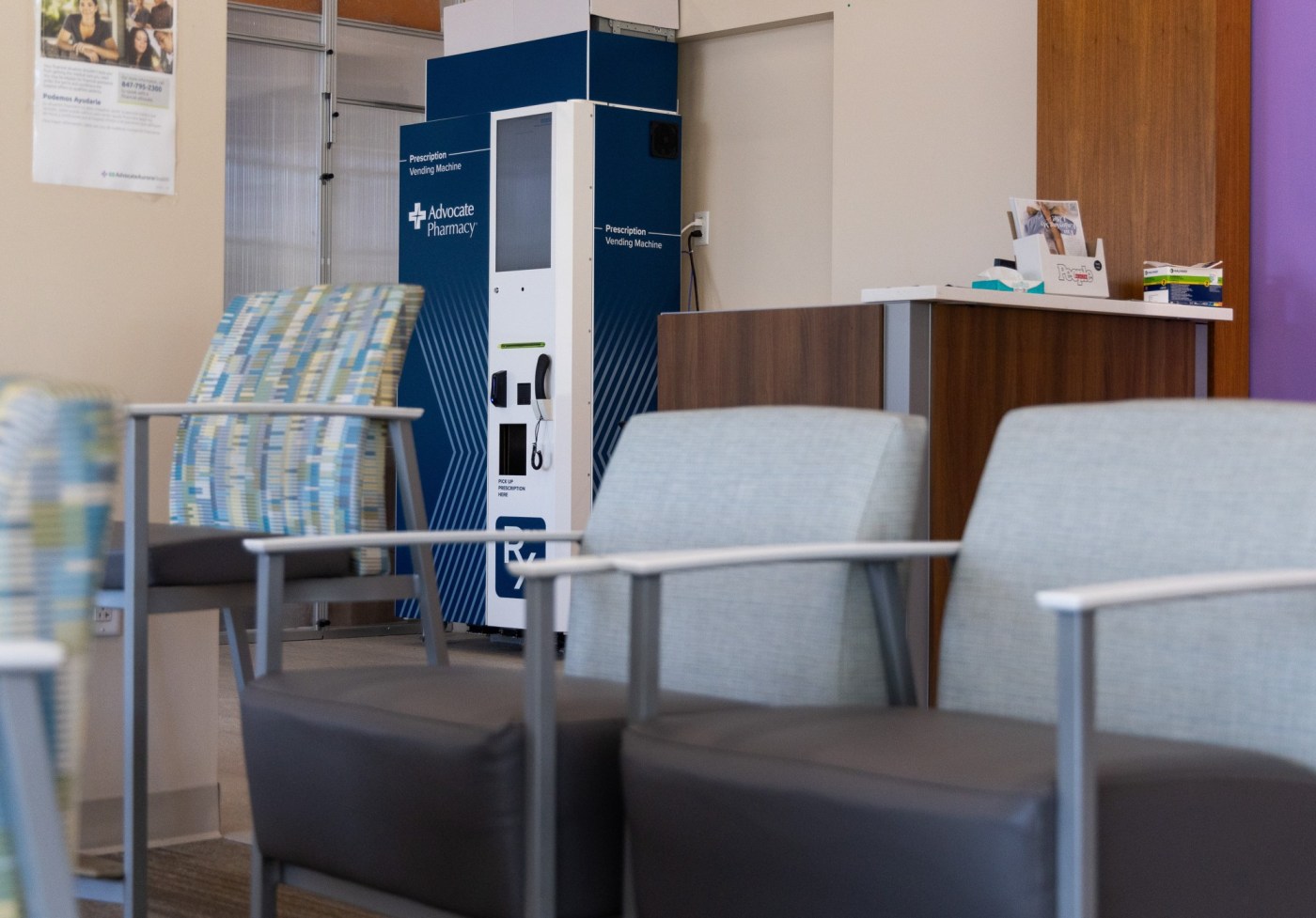In a significant healthcare innovation, two vending machines dispensing prescription medications have been installed in Chicago at Advocate Trinity Hospital and Advocate Medical Group’s Imani Village clinic. This initiative allows patients to conveniently access their medications right after doctor appointments or hospital discharges, addressing a pressing issue of medication accessibility in some areas.
The vending machines are stocked with essential medicines for common ailments such as flu, bacterial infections, and gastrointestinal issues, as well as medications for chronic conditions including heart disease, high blood pressure, and asthma. Patients can retrieve their prescriptions immediately following consultations, a move designed to streamline the experience and encourage medication adherence.
Doctors inquire whether patients would prefer to collect their medications from these machines. If patients agree, prescriptions are sent to Advocate Health Care’s pharmacy team, which verifies availability. Once confirmed, patients receive a notification via call or text, prompting them to collect their medications. Each machine features a large screen for identity confirmation, and patients can also communicate with a pharmacist through a video call for any inquiries.
Michelle Blakely, president of Advocate Trinity and South Suburban hospitals, explained that the vending machine initiative was developed in response to feedback from patients and healthcare providers. Many patients struggle to access medications due to the limited availability of pharmacies on the South Side, often referred to as “pharmacy deserts.” Earlier this year, the closure of two Walgreens stores further exacerbated this issue, leaving residents with fewer options.
“A patient discharges with a prescription, goes home, doesn’t fill the prescription and circles back to the hospital, unable to take those medications that we know could have made a difference for them,” Blakely stated. With the vending machines, medications can be placed directly in patients’ hands before they leave the facility.
Dr. Julie Taylor, a family medicine physician at Advocate, recently utilized the vending machine to provide an antibiotic prescription to a patient. “She would save money on transportation to the pharmacy, save time waiting,” Taylor noted. The convenience of the vending machines addresses the challenges patients face, including paying for transportation or waiting for medications to be restocked.
Since their activation, the two machines have dispensed over 35 prescriptions, with the one at Trinity going live approximately a month ago, while the Imani Village machine was activated in recent weeks. Taylor emphasized the importance of these machines, stating, “If it helps them, if it keeps them out of the hospital, it’s a benefit. It saves them time and money and headaches.”
Nevertheless, some healthcare professionals express concerns regarding the absence of human pharmacists in these settings. Garth Reynolds, executive director of the Illinois Pharmacists Association, acknowledged that while vending machines enhance access, the ideal scenario involves having pharmacists or pharmacy staff present to assist patients directly. “Patients react better to being able to have access to that human-to-human interaction,” Reynolds added, although he appreciated the option for video consultations with pharmacists.
The introduction of vending machines is part of Advocate Health Care’s broader initiative, which includes a $1 billion plan to enhance healthcare delivery in the South Side of Chicago. This strategy aims to replace Advocate Trinity Hospital with a smaller yet modern facility, expand access to both primary and specialty care, and ultimately address long-standing health disparities in the region.
Looking ahead, a third vending machine is scheduled to be installed at Advocate South Suburban Hospital in Hazel Crest later this year, with potential for further expansion across other Advocate locations in the future. The overarching goal is to improve health outcomes in an area that has historically faced challenges in accessing quality healthcare services.






































































